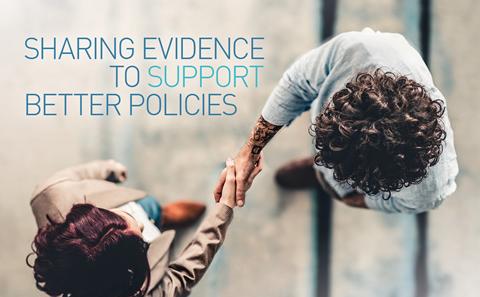
Policy Projects
Learn about PPS led current collaborative projects between the University of Southampton researchers and UK Government and Parliament.
Errors and omissions in care in hospitals are common and lead to thousands of deaths; low registered nurse staffing levels contributes to many of these potentially avoidable deaths. Research from the School of Health Sciences’ Health Work Research Group has contributed to improving hospital care around the world through safer staffing.
A crisis in care: nurse staffing centre stage
The 2013 Francis Inquiry into the care scandal at Mid Staffordshire NHS Trust found that many patients had gone without essential nursing care, with fatal consequences for some. Reductions to nurse staffing, to achieve short-term financial savings, had ignored the risks of staffing changes to patient safety. The inquiry revealed the lack of policy or standards on nurse staffing levels and recommended that national guidelines be developed. After a review of evidence led by Southampton, the National Institute for Health and Care Excellence (NICE) produced guidelines on ‘safe staffing’ for acute hospital wards in 2014.
The RN4Cast study
Developed with senior health service managers and policy makers and funded by the EU, RN4Cast was the largest global study to have examined the relationship between nurse staffing and patient outcomes. The findings exposed the risks of not having sufficient Registered Nurses on hospital wards.
Analysis published in the Lancet showed that after differences in the mix of patients were accounted for, a hospital in which nurses had to care for more patients had higher death rates. For each additional patient per nurse the odds of death increased by 7%. We found that when nurse staffing levels are lower, nurses were more likely to report that necessary care was left undone due to lack of time. Further analysis found that the amount of ‘care left undone’ contributes to the risk of unexpected death amongst hospital patients. Additionally, we found that hospitals that rely on lower levels of registered nurses and higher levels of lesser trained support staff had higher mortality rates.
Influencing policy
These findings have motivated change, providing core evidence for global policy (World Health Organisation, International Council of Nursing); legislation (Wales, Scotland); changes in practice (Staffing Framework in Ireland); safe-staffing campaigns (e.g. Royal College of Nursing, Safe Staffing Alliance); and the development of safe-staffing guidelines in the UK (NHS Improvement, and NICE).
Post Francis: have safe staffing policy been fully implemented in the NHS?
We looked at how well safe-staffing policies developed after the Francis Inquiry had been implemented by NHS acute hospitals in England. The inquiry and NICE guidelines had succeed in raising awareness for the need of sufficient RNs to ensure patient safety; 74% of chief nurses surveyed in 2017 said board support for nursing workforce had improved since the Inquiry. We estimated that the increases in nurse staffing seen from 2013 to 2015 after the publication of the NICE guidance could have led to 1,760 fewer deaths per year in English hospitals.
Do no harm…
Our work has helped to underline the importance of nurse staffing levels to the safety of patients and quantified the consequences of low staffing. Florence Nightingale famously said “the first requirement in a hospital is that it should do the sick no harm”. Having enough nurses to ensure that high quality and complete care is delivered avoids harm and allows patients to have the best possible outcomes from hospital care.
Professor Jane Ball and Professor Peter Griffiths, Health Workforce and Systems Research Group, Health Sciences

Learn about PPS led current collaborative projects between the University of Southampton researchers and UK Government and Parliament.

Click here to listen to our Policy Podcast series. In each episode we speak to UoS researchers and experts, about their experiences confronting critical issues in the domestic and foreign policies.

Guidance on the many channels available to researchers to engage with policymakers.

Guidance on things to consider in the science to policy process and useful tips in planning and costing your impact activities.